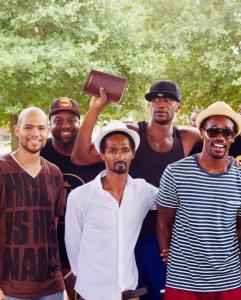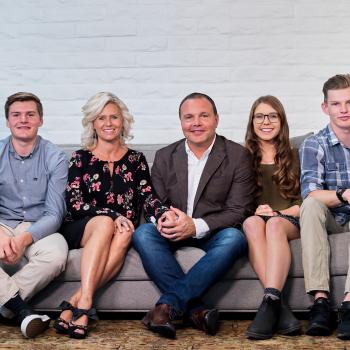CHRISTIANS SHOULD STOP TALKING ABOUT SEX AS SINFUL
Many participants thought that Christians should quit their fixation with sexuality and move on to more important problems. Two examples from our women’s focus group in Austin:
“They keep bringing it up (same-sex marriage). It’s like that’s not our biggest problem, people…. Who cares?…. It’s no one’s business. If you want to believe it believe it but you don’t have any say. It doesn’t affect you in any way. If you think a gay person is going to go to hell, let them go to hell if they need to. But it has nothing to do with you and it’s completely just tearing our country and our society apart that Christianity thinks that it is such a huge part of our country. I hear people say on a regular basis, our country is founded on Christianity. No it wasn’t. It was founded on the fact of separation of church and state.”
“It’s just stupid and they’re bringing it to the forefront and it doesn’t even belong there. They keep pushing it. There are better things to talk about. It’s a waste of time. That’s not being taught about being respectful. Yes, you’re right. My stepmom and dad are Christian. I’m sure they’re against gay marriage and all that but it doesn’t affect them in any way, shape, or form. If you love someone you love someone. It’s not hurting their religion if a gay couple gets married in any way. It’s just their view and they’re wanting to push it on and think that everybody needs to think the way they think. It’s just frustrating because what they’re arguing for is just the same thing that they’re arguing against. They don’t want the government to tell them what to do in their church but yet they’re going to tell the government what they can do outside of their church.”
Daniel in Austin shared his own mixed experience of rejection and acceptance as a gay man:
“Being a gay male also, and not agreeing with a whole lot of the things that people do in the name of religion and faith, why wouldn’t you be scared? To me, people believe in God because they have something to fear and the fear is what drives them to obey. Well, I’m not afraid but, I am afraid of you because you believe in something that could harm me eventually. I have a couple of friends that are similar to me, not many, and we have dinner together sometimes and we joke… We say things to each other sometimes, when we see some religious people doing something or whatever and we can agree together, that we’re like, ‘That makes me afraid. I’m really afraid’ because of the things that they do in the name of religion, or because of something they were taught that has to do with religion…. And I work for a Catholic company who does a lot of really great things; spends half a billion dollars a year doing charity care. I don’t believe in the Catholic religion or practice anything. I’m also gay. They leave me alone. A lot of people I work with in that company knows this….”
Daniel went on to explain that being gay was the way he was made. “It’s beyond me. I can’t change it, so why would I care about it? It would be caring that I’m Mexican, or something and hating the fact that I was born that way. There’s nothing I can do about it so I don’t pay any attention to it…”
In every one of our focus groups abortion was mentioned along with same-sex marriage. Pants and parenting went together as issues of personal freedom. One of the guys in San Francisco summed up what many said about abortion: “This person believes in abortion. This person doesn’t. If we make it illegal, neither of them can get an abortion, but if we keep it legal this person could have their abortion and this person cannot have abortions. That’s why I have a problem with this person’s view and not this person’s view.”
Same-sex marriage and abortion were clearly hot button issues for people outside the church. What ties these social issues together is sexuality.
THE CULTURE CHANGED AND CHRISTIANS LOST
In many circles, cultural attitudes toward homosexuality have more or less flipped since the American Psychiatric Association’s Diagnostic and Statistical Manual of Mental Disorders stopped listing homosexuality as a mental disorder in 1974. Once considered by mainstream society to be an undesirable psychological condition, it has rapidly morphed into a cause to be celebrated. Those who are unsupportive are said to be on the wrong side of history. Because this is widely perceived as a civil rights identity issue, respectful disagreement is unacceptable because it is widely considered in the same category as racism and bigotry.
This puts many evangelicals in a tough spot. No matter what our motivations or how reasonably we try to make our case, we are deemed a voice of hatred. Most of us do not want to be culture warriors who appear mean-spirited toward any group. Many of us are also painfully aware of our own shortcomings as we seek to live up to biblical standards. But most are not ready to ignore or abandon the Bible’s clear teaching. We do not believe we have any right to rewrite a sacred book that we believe God wrote and our faith has remained devoted to for thousands of years. Sensing that we are on the losing team, many Christians simply keep their mouths shut. They themselves have a myriad of questions. They swim in a sea of objections from others. They are unsure how to respond.
There is one fact that all sides in this debate should come clean and admit. Everyone believes there should be some lines drawn for marriage. At least for the time being, no jurisdiction in the United States allows more than two people to marry. Nowhere are adults allowed to have sexual contact with or wed minors. Polygamists and pedophiles argue those positions are blatant discrimination. Maybe they are. I contend these protests show it is impossible for anyone to speak on the morality of sexuality or the legality of marriage alternatives free from their own moral code. The debate is not over whether to draw the line, but where and why to draw it.












